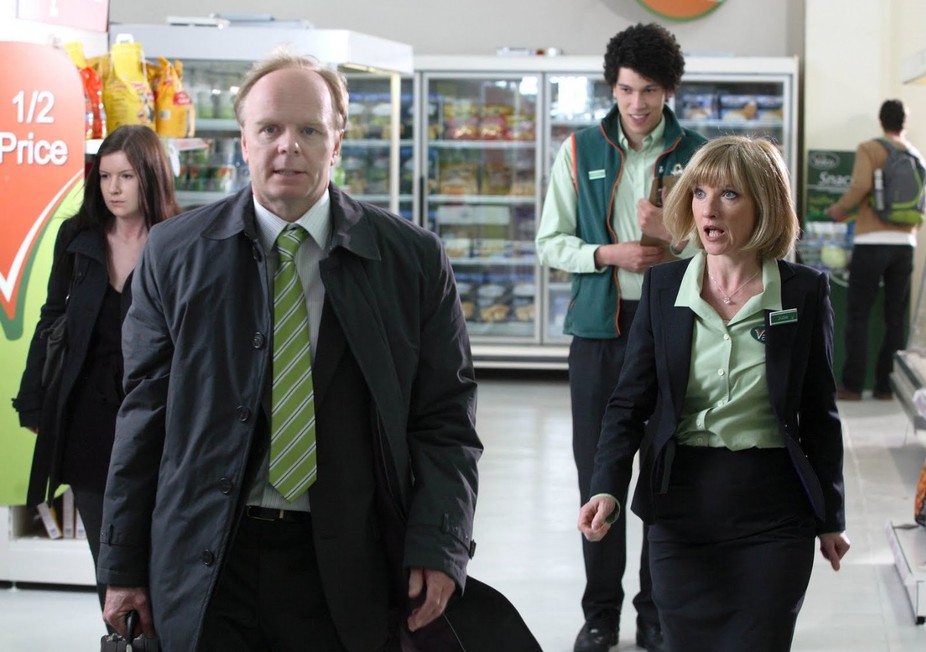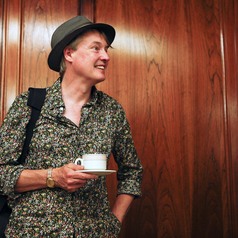For the comic protagonist, the literary critic Northrop Frye once observed, life is something you get through. While tragic characters die in plangent splendour, and Marvel superheroes vanquish tech-spangled foes, the comic protagonist weaves across existence like a drunk in ten-lane traffic.
Armed only with the Power of Incompetence and teflonic emotional endurance, s/he faces up to the onslaught of the ordinary as things fall apart yet, miraculously, stick themselves back together again.
We laugh and we nod. Yes, that’s it. Life’s a disaster but worth it, mostly. Comic protagonists are a comfort because they’re on our level. If they were better than us, they’d be in the Serious Drama section.
Within the genre of comedy there are a number of subgenres. The least assuming is pastoral. In the Renaissance, when classical theatre was rediscovered, it was a bucolic form involving shepherds and shepherdesses in pursuit of appropriate romantic attachment. Settings were rural, gentle and contained. Pastoral is unthreatening. It deals in the drama of innocence.
When you parent a twelve-year old who loves to laugh, you work your way through the humour line up. Currently, we are watching Trollied, a made-for-television comedy set in a Northern England supermarket (see, that’s funny right there). In our household, it follows on from No Activity, a made-for-television comedy set in an Australian police car and calling station, and The Big Bang Theory, a made-for-television comedy set in Pasadena, California, about science nerds (as close to shepherds frolicking on a Tuscan plain as the twenty-first century gets).
These shows are the lightest of things, soap bubble vehicles made of stock characters and serviceable dialogue. Except, actually, they’re not. They are profound statements about the meaning of life and what’s of value in it. Trollied’s supermarket is called Valco. Its motto is “serves you right” (geddit?). Let’s take a moment to consider this sweetest of forms.
Modern pastoral owes a big debt to Samuel Beckett. It was Beckett who made waiting intellectually respectable. The characters in Trollied – Gavin, the up-tight, carrot-topped manager, Julie, his up-tight, whippet-thin assistant, and the array of likeable duds who comprise the Valco staff – spend their days existentially pursuing Not Very Much.
In Warrington, work is not the point of life. It is faintly moving scenery against which people wobble, whinge, laugh, pontificate, play, love and fall down. The supermarket ticks over in an atmosphere of elevated boredom, allowing everyone to indulge the dysfunction of their choice.
Everything happens within the supermarket, the modern shepherd’s field. Beyond its doors lies Scarborough or death, take your pick. Meanwhile, life is what it is: a doomed battle against the forces of change, with the occasional winning embrace of them.
On the surface, pastoral doesn’t judge. But close attention reveals it is focused on the human figure. Its interest is in what can be expected of people, and what people expect of themselves.
In the third series of Trollied, a thong-wearing, 20-something management guru, Richard France, arrives to make Valco over. Like the other characters, Richard is awful and hilarious and instantly recognisable. He sets up a PR tent in the supermarket and makes Gavin man it: “the Ideas Fort”.
Gavin fumes, but knuckles under. There’s subversion in pastoral but rarely resistance. That’s one message of the subgenre: that other people can be very annoying but finding a way to cope, rather than beating them to a bloody pulp, is an important skillset.
Valco staff are marshalled into functions, like medieval guilds: butchers, bakers, fishmongers etc. It’s a rich profusion of oddity but the wacky centre of it is probably Leighton, played by Joel Fry.
Leighton is a goofy yoof who looks like an over-sized toilet brush encased in skin-tight Valco livery of green and orange polyester. He’s all enthusiasm and all disaster. Among his initiatives are re-arranging the magazine section in alphabetical order, and designating the Essential Items Isle as one-way.
Leighton’s lamb-like purity designates him as another traditional figure – the holy fool. As rampant capitalism reduces our lives to Gradgrind misery, it is the holy fool’s job to reduce capitalism to arrant nonsense.
Which Leighton does spectacularly well. In one episode, Richard takes him to Head Office thinking he’s an entrepreneurial genius. Leighton presents an idea for robot shelves with frog’s legs attached. It’s rejected. Valco doesn’t have a pond. How could he not have noticed!
For value researchers, watching Trollied is like looking in the bathroom mirror. As we ask “what’s the measure of culture?” the show asks “what’s the measure of life?”
In a world of KPIs, frequency tables and abstract terminology, pastoral drama is a reminder the only way to meaningfully assess culture is to meaningfully engage with some.
What’s to lose? The heart of pastoral is the golden trinity of tolerance, forgiveness and love. In an angry year, that’s a cultural experience beyond calculation.
 Julian Meyrick, Professor of Creative Arts, Flinders University
Julian Meyrick, Professor of Creative Arts, Flinders University
This article was originally published on The Conversation. Read the original article.




 Disney’s ABC Pulls Jimmy Kimmel Live! After Controversial Remarks on Charlie Kirk Killing
Disney’s ABC Pulls Jimmy Kimmel Live! After Controversial Remarks on Charlie Kirk Killing  Trump-Inspired Cantonese Opera Brings Laughter and Political Satire to Hong Kong
Trump-Inspired Cantonese Opera Brings Laughter and Political Satire to Hong Kong  Disney’s Streaming Growth Hinges on International Expansion and Local Content
Disney’s Streaming Growth Hinges on International Expansion and Local Content  Gulf Sovereign Funds Unite in Paramount–Skydance Bid for Warner Bros Discovery
Gulf Sovereign Funds Unite in Paramount–Skydance Bid for Warner Bros Discovery  Trump Faces Mixed Reception at Kennedy Center Amid Conservative Overhaul
Trump Faces Mixed Reception at Kennedy Center Amid Conservative Overhaul  Nasdaq Proposes Fast-Track Rule to Accelerate Index Inclusion for Major New Listings
Nasdaq Proposes Fast-Track Rule to Accelerate Index Inclusion for Major New Listings  Mexico Probes Miss Universe President Raul Rocha Over Alleged Criminal Links
Mexico Probes Miss Universe President Raul Rocha Over Alleged Criminal Links  The Mona Lisa is a vampire
The Mona Lisa is a vampire  Elon Musk’s Empire: SpaceX, Tesla, and xAI Merger Talks Spark Investor Debate
Elon Musk’s Empire: SpaceX, Tesla, and xAI Merger Talks Spark Investor Debate  Pulp are back and more wistfully Britpop than before
Pulp are back and more wistfully Britpop than before  Trump Proposes Two-Year Shutdown of Kennedy Center Amid Ongoing Turmoil
Trump Proposes Two-Year Shutdown of Kennedy Center Amid Ongoing Turmoil  Google and NBCUniversal Strike Multi-Year Deal to Keep NBC Shows on YouTube TV
Google and NBCUniversal Strike Multi-Year Deal to Keep NBC Shows on YouTube TV 
































